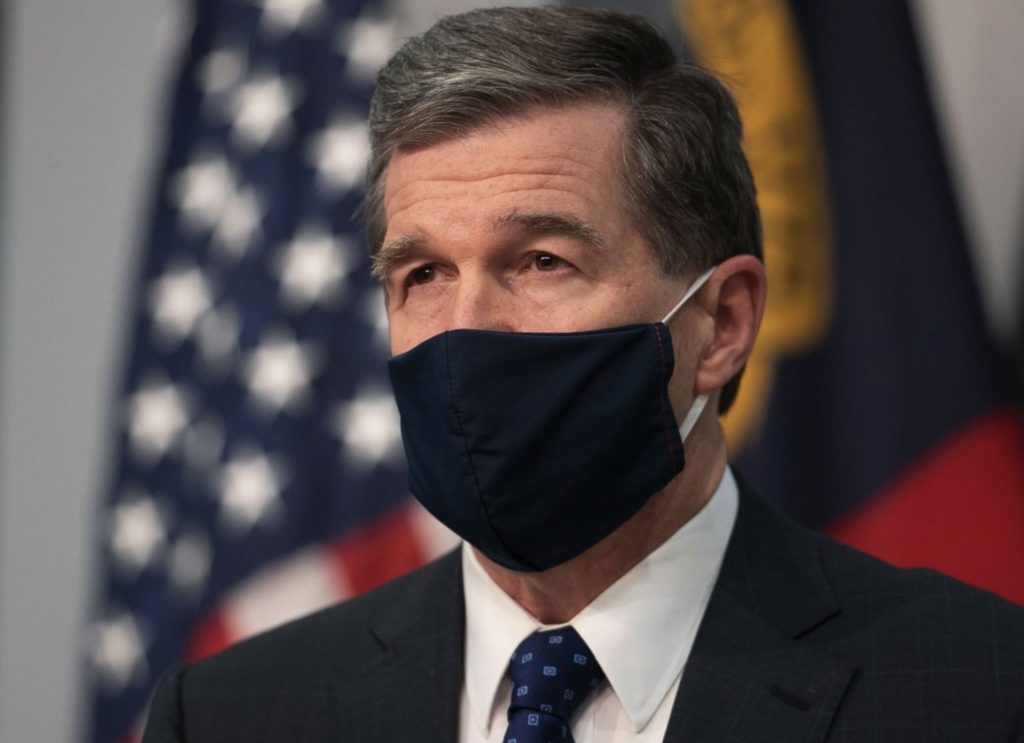NC Gov. Cooper reiterates his ask of lawmakers for more money in education
(The Center Square) – North Carolina’s Democratic governor is asking the Republican majorities in the Legislature to help fund the repair for costly stay-at-home orders he and Health Secretary…

(The Center Square) – North Carolina’s Democratic governor is asking the Republican majorities in the Legislature to help fund the repair for costly stay-at-home orders he and Health Secretary Dr. Mandy Cohen mandated during COVID-19.
Gov. Roy Cooper, in a release from his office on Tuesday, pointed to a report from the Department of Public Instruction saying students had significant learning recovery in nearly every subject in 2021-22. Cooper tied that learning increase to “over $5 billion in federal investments sent to North Carolina’s public schools to address the pandemic’s impact.”
The timeframe also follows Cooper and Cohen having shut down public schools – and a number of businesses and houses of worship, to hit the tip of the iceberg – with mandates and directives starting the weekend of March 14-15, 2020. COVID-19 cases had begun to escalate and the duo was following guidance from Dr. Anthony Fauci, the national leader on infectious diseases at the time whose leadership has been heavily scrutinized – arguably by himself.
Fauci has since left that position and was part of a trio authoring a paper on vaccinations in the publication Cell Host and Microbe. In it, the piece makes clear that developing long-term vaccines for respiratory conditions like COVID-19 is very difficult and a problem that still needs to be overcome, something researchers have known for years.
“North Carolina students saw major learning recovery and increased test scores because of unprecedented federal funds directed to public education,” Cooper said in the release without citing empirical evidence that tied the funding to student improvement. “The impact of these funds shows that when schools have more resources, students succeed, and our state Legislature must follow through with major investments in public schools and teachers to continue the momentum and ensure every child has the sound, basic education our Constitution requires.”
The Nation’s Report Card, released in October, lumped North Carolina in with many states suffering through the COVID-19 mandates of federal, state and local government.
The Old North State was among 30 with significant declines among average reading scores for fourth grade between 2019 and 2022, and among 33 states with declines in eighth grade reading scores. The state was among 43 others with declining fourth grade math scores, and 51 states or jurisdictions with declines in eighth grade math.
The National Assessment of Education Progress results confirmed a state report issued in March 2022 that found learning progress slowed across all grades and subjects during the pandemic, particularly in math. The report found students would need more than a year of additional learning to get back on track, the state Department of Public Instruction reported.
In North Carolina, schools went to remote forms of education in the last of the 2019-20 year. Many of the 115 public school districts remained disjointed to varying degrees in 2020-21 and into 2021-22.
As for Cooper’s wish for more money in education, two parts of the three-pronged budget process are in – Cooper’s proposal and another from the House of Representatives. The Senate proposal is expected soon, and then the negotiation begins leading to the fiscal year starting July 1.
Medicaid expansion is tied to passage and Cooper’s signature on the two-year budget, leaving Republican majorities in the two chambers with extensive leverage over the Democrat with lame duck status the next 20 months.
Cooper’s plan, with a bottom line of about $67 billion over two years, was released March 15. The House has proposed spending $60.7 billion. The Senate version is expected closer to the House version than that of Cooper.
Education spending is a lightning rod into an equation that leaves the state solid purple in political shade. Cooper’s plan had an 18% pay raise for teachers. While Cooper touted four-figure bonuses not only to state educators but to state workers as well, the House plan didn’t have those and yet still delivered teacher raises of 4.25% the first year, and 3.25% the second; and it returns master’s pay that was removed in 2013 when Republican Gov. Pat McCrory was in his first year.



